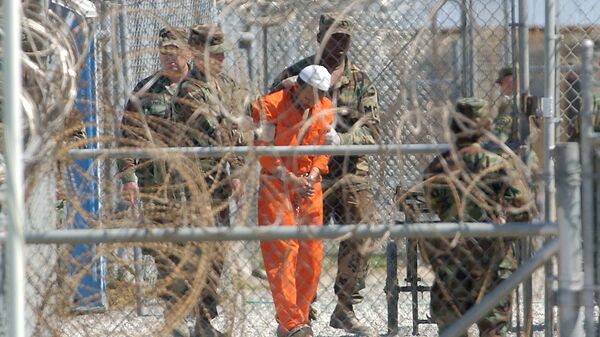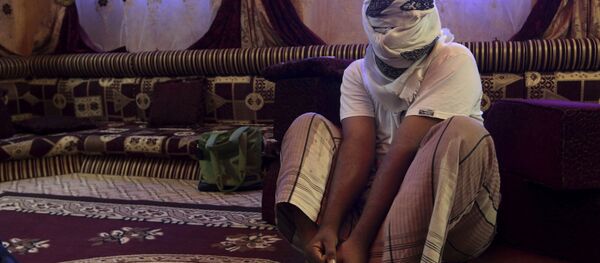It has been found out that the United States' military forces were involved in torturing detainees held in secret United Arab Emirates-run prisons in Yemen, Human Rights Watch reported, citing an Associated Press investigation.
"The details are grotesque: Prisoners in these centers were 'crammed into shipping containers smeared with feces and blindfolded for weeks,' beaten, and trussed up on a 'grill' — a spit like a roast to which the victim is tied and spun in a circle of fire," the watchdog wrote, adding that detainees "were also sexually assaulted, among other forms of abuse."
"We always adhere to the highest standards of personal and professional conduct," Pentagon spokeswoman Dana White said, adding: "We would not turn a blind eye [to torture practices]."
However, it is no secret that US military and intelligence personnel was repeatedly spotted using "enhanced interrogation techniques," Israeli political commentator Avigdor Eskin writes in his recent op-ed for RIA Novosti.
"It is known that after September 11, 2001, US intelligence agencies used 'enhanced interrogation' methods in special prisons outside the territory of the United States," Eskin wrote, "The system of obtaining information from detainees by any means was activated by a special order of the President of the United States."
The crux of the matter is that aside from the immorality of such methods, the much-discussed "enhanced interrogation techniques" ultimately proved inefficient, the political commentator noted.
"Under torture anyone will admit anything, and this is ineffective," Eskin pointed out.
"The first to question the effectiveness of 'special methods' were Britons. After several sensational cases of false confessions made by Irish Republican Army terrorists in the 1980s, a broad and open discussion of the topic began in the UK. [As a result] fans of hard methods had to retreat," he recalled.
Eskin noted that similar interrogation techniques had been practiced by the Israel Security Agency, better known by the acronym Shabak. In addition, Shabak personnel checked the reliability of the information obtained through forced interrogation with the help of 'lie detectors' and psychological tests.
"However, the degree of reliability of these testimonies was often thrown into doubt in Israel," Eskin highlighted, "After several weeks of intensive inquiry, some terrorists began to believe that they had really committed something they had never been involved in. They not only believed in this — they also passed the lie detector test, because they convinced themselves of their involvement in the crime [they had never committed]."
"All of above was taken into account by the Supreme Court of Israel which banned [forced] interrogation practices in 1999," Eskin stressed.
It still remains unclear whether or not Washington will completely abandon controversial harsh interrogation methods.
In late January 2017 US President Donald Trump hinted that when it comes to counterterrorism efforts torture practices could be justified.
"When ISIS [Daesh] is doing things that no one has ever heard of, since medieval times, would I feel strongly about waterboarding? As far as I'm concerned, we have to fight fire with fire," Trump stressed in his interview with ABC News expressing his confidence that torture "works."


